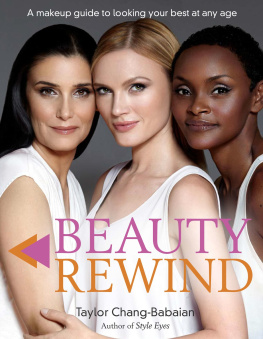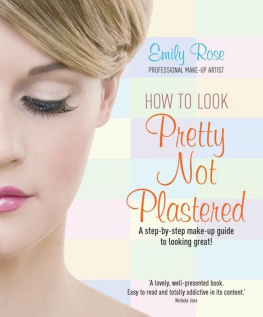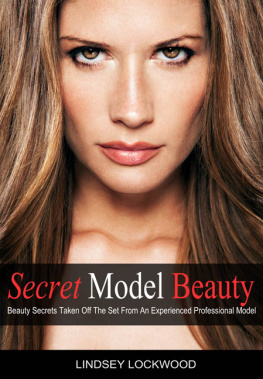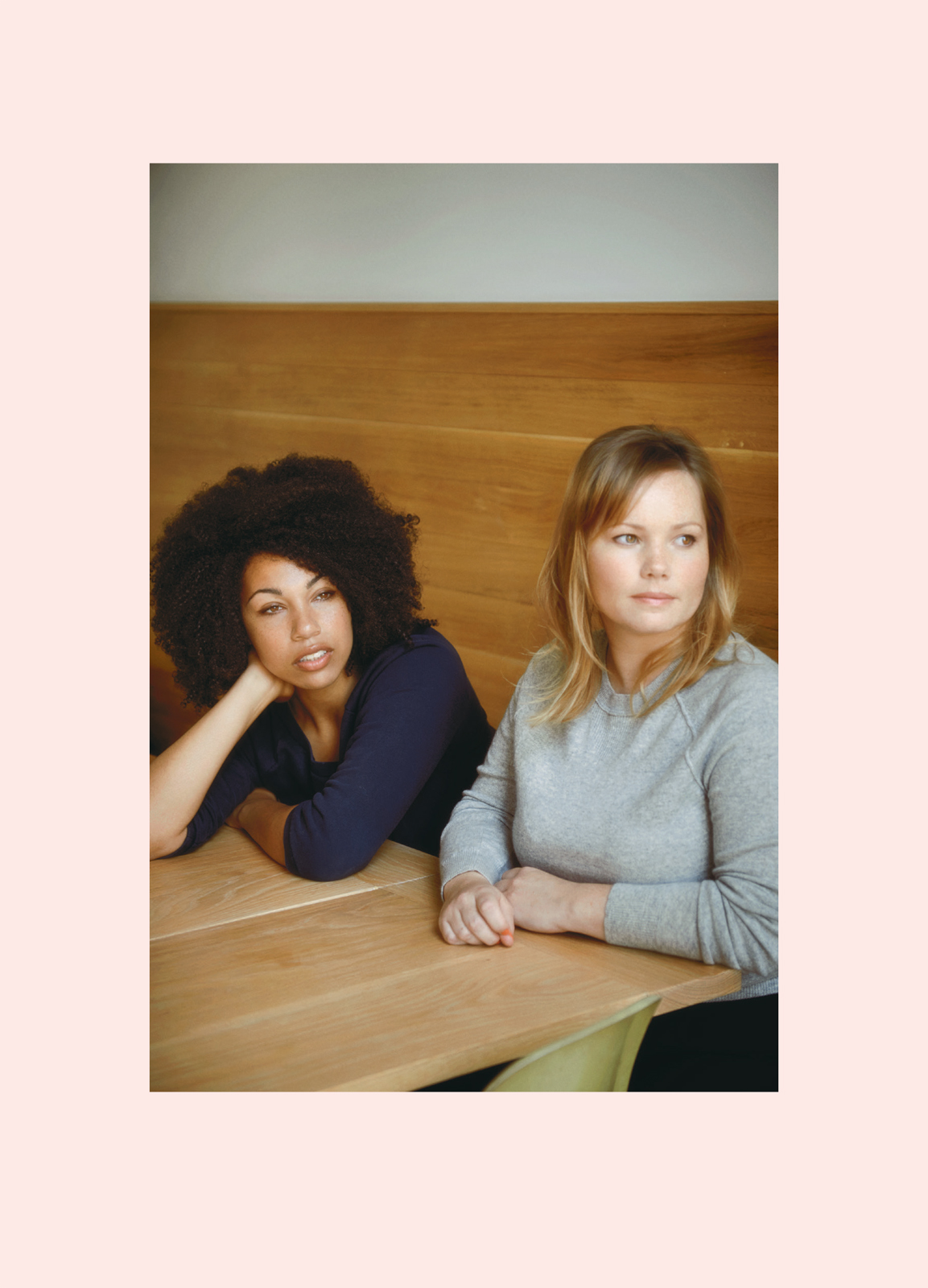Im tired of all this nonsense about beauty being only skin-deep. Thats deep enough. What do you want, an adorable pancreas?
Jean Kerr
Ask anyone what is their skin type and most will say combination or sensitive or both. Neither is as common as that. Women with a different answer will usually say dry, when in fact they are dehydrated. This must be overcome, because nothing in a bottle will improve your skin until you really know what youre dealing with. Arming yourself with your skin type, whether you are a textbook case of one, or a combination of 23 different types (menopausal women often find they run the gamut of skin types through the process of change), will allow you to buy the right products and stop wasting money on the wrong ones.
Skin typing is very useful, but of course not an exact science. Its perfectly possible to be a little from column A and a lot from column B. For example, my skin is both dry and dehydrated but I find it responds best to products targeting the latter. My skin is rarely sensitive (miraculous, given how many products it endures in the name of research) but when it does flare up, cold weather and sugar are almost always at the scene. At which point, it is time to drop certain beloved products (those containing AHAs, for starters) temporarily from my routine. I know mineral oil sometimes makes me break out, but shea butter doesnt (it often does others). I know that a serum without the inclusion of hyaluronic acid will do nothing for me, but a facial oil without it will. This methodical thinking comes from knowing my own skin and observing it closely when times are good and bad. Skin typing is not a prescriptive business, its really to help you to become an expert in your own skin, being aware of what your face loves and loathes and recognising when you can help and how.
Skin really is the beginning and end of beauty. With a canvas of great-looking skin, its pretty hard to go wrong thereafter. And unlike make-up, hair and nails, skin is about so much more than appearance. Its your bodys largest organ and the only one able to give you a daily visual update of its general health. Take advantage of that and listen to what its telling you.
D RY
Feels uncomfortable and desperate for moisturiser after cleansing or showering
Feels dry by the end of the day after proper moisturising in the morning. Make-up is patchy
Feels sore in cold weather but is aggravated by central heating
Shows fine lines earlier than others in your peer group
Prone to dullness and flakiness, especially in winter and around the nose, eyelids and cheeks
Feels dry when you wake up each morning without a rich night cream before bed
Small pores
Prone to milia, the little white lumps that can hang around for months, especially surrounding the eyes
I find women are increasingly calling themselves really dry. I see this as a bit like wheat intolerance or Seasonal Affective Disorder all are real, none are anything like as common as were led to believe. Some dryness is usual but, mercifully, many of us havent the faintest idea what it really means to be a genuine dry skin sufferer. Those with truly dry skin couldnt contemplate leaving the bathroom for breakfast without first applying rich moisturiser (my skin is so dry that I have to clean my teeth before showering theres not enough time after exiting the shower to do so as by then my skin is so uncomfortable I have to grab some oil and cream immediately).
While summer generally offers some relief for sufferers, winter can be hell, and demands an extra emollient, take-no-prisoners, mega-moisturiser to avoid stinging, chapping, dullness and discomfort. Pharmacy and prescription brands like E45, Vaseline and Diprobase are often great on the body but can cause breakouts on the face (contrary to popular belief, dry skin can easily break out with trigger ingredients like mineral oil) and are very poor as a make-up base, which for me is almost as intolerable a predicament as the dryness itself. Im of the opinion that the best treatment for a dry complexion from slightly dry to parched and sore involves the daily use of oily, soothing cleansing balms, high-grade plant oils, rich cosseting creams and gentle exfoliants.
S ENSITIVE
Sometimes feels hot and itchy after cleansing
Flares up easily after using new skincare
Is more irritated at certain times in the menstrual cycle
Can be oily, combination, dry, dehydrated
Can come and go
Is prone to hot, itchy red blotches that get worse if touched
Sometimes angry-looking after a shower
Burns fast in the sun
Sensitivity is really bloody annoying if you love beauty. Lots of products contain active ingredients which, though perfectly safe, aggravate the skin of certain women to the point where they are either unpleasant or impossible to use. The problem is that very often women who believe themselves to be sensitive are actually only sensitive to one or two ingredients that are so prevalent in mainstream cosmetics that they seem impossible to avoid. Nonetheless, its well worth working out whats causing the irritation. You need to do this through the rather tedious process of elimination: scaling your skincare right back then re-introducing each product one by one until you identify the offender. Fortunately, you may only have to do this once or twice in your life because a proper scan of a products ingredient list may give you a good idea of whats causing the problem. You can then avoid it more easily because increasingly niche brands are ditching common irritants mineral/palm/paraffin oils, fragrance, parabens, alcohol and so on (lots of people are perfectly fine to use these). It may occasionally mean paying a little extra, but this also seems to be changing. You can now buy decent non-irritating skincare in most high-street chemists and health-food shops. Sensitive types should also check their diets. Many experts will tell you theres no link between diet and skin but nothing will change my mind I have known too many women, including myself, who see increased sensitivity when consuming too much sugar, and a significant decrease when we have a word with ourselves and stop. I am a decidedly orthodox person, I am big on chemicals and pretty sceptical on alternative therapies, but this is one area in which I believe in 20 years client experience over science.
C OMBINATION
Pores are larger around the nose, forehead and chin
Cheeks are generally normal, but prone to mild to moderate dryness
The T-zone: forehead, nose and chin are more oily and spot prone, especially at certain times in the menstrual cycle, during pregnancy or menopause
Its hard to find a moisturiser that leaves the entire face matte and comfortable
Make-up becomes patchy throughout the day
Most women I meet believe they have combination skin to some degree or another and I certainly agree that the majority of us will experience it at some point in our lives.
Combination skins are typically more likely to be sent off-kilter by hormones (period-related breakouts are common in combo types) and are particularly exacerbated by menopause. Sensible skincare is very important; I find that very often combination skin actually started out as relatively balanced skin that suffered ill treatment from either very harsh oil-stripping or inappropriately rich moisturising. Subsequently, the main goal is to not exacerbate either problem (forcing skin to opt for either extreme), so gentle, sympathetic skincare is essential. Most combination types prefer the texture, feel and staying power of oil-free moisturiser by day. This is fine, but I advise using balancing plant oils in the evening and regular use of a mild liquid exfoliant. I would counsel against the use of a foaming face wash particularly those containing sulphates (SLS). A balm, oil or cream cleanser is more sympathetic to unbalanced skins.

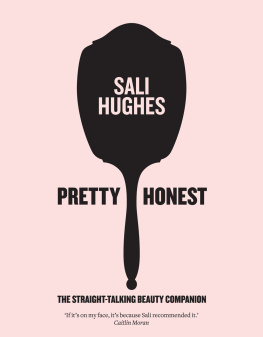


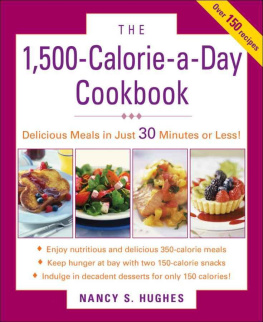



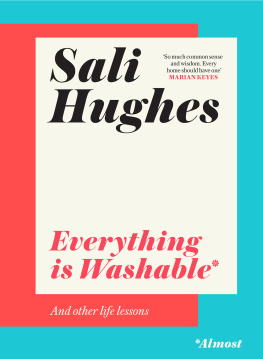

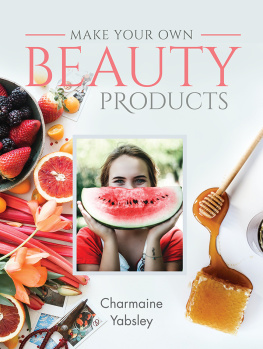

![Ringwald - Getting the pretty back: [friendship, family, and finding the perfect lipstick]](/uploads/posts/book/189846/thumbs/ringwald-getting-the-pretty-back-friendship.jpg)
